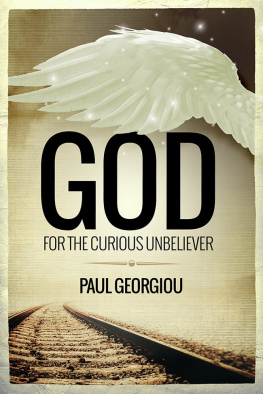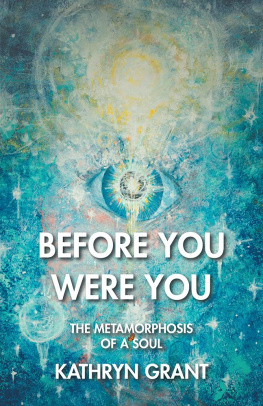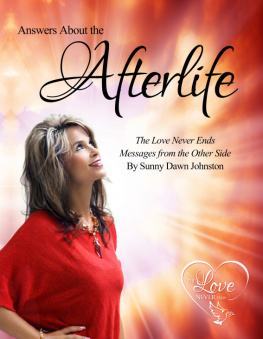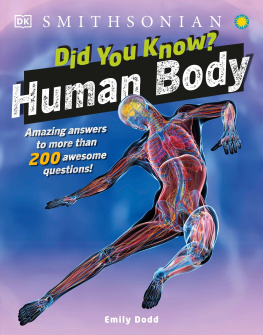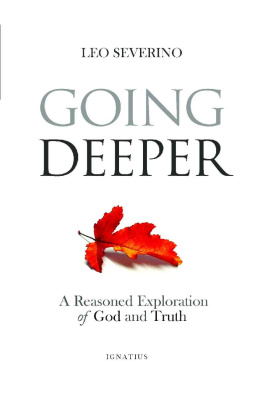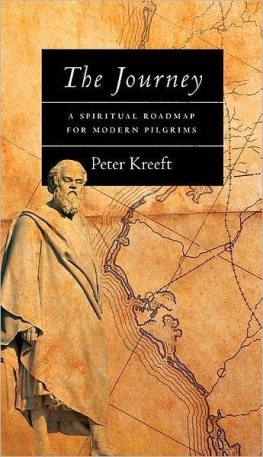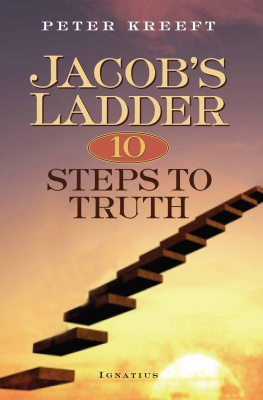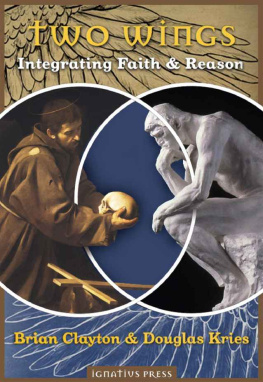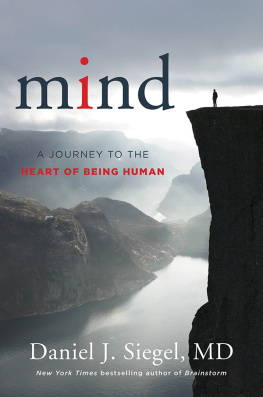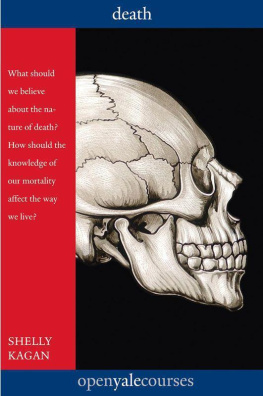
Published by Panarc International 2016
Copyright Paul Georgiou
First Edition
The author asserts the moral right under the Copyright, Designs and Patents Act 1988 to be identified as the author of this work.
All rights reserved. No part of this publication may be reproduced, stored in a retrieval system or transmitted in any form or by any means without the prior consent of the author, nor be otherwise circulated in any form of binding or cover other than that in which it is published and without similar condition being imposed on the subsequent purchaser.
Panarc Publishing
www.panarcpublishing.com
Panarc International
www.panarc.com
ISBN: 978-0-9954637-2-1
.epub eBook ISBN: 978-0-9954637-3-8
.mobi eBook ISBN: 978-0-9954637-4-5

CONTENTS
INTRODUCTION
Im not any good at faith.
Its not that Im afraid to take a leap. Its just that, if you abandon evidence and reason, theres no way of knowing whether your leap is taking you in the right direction.
So thats it. I intend to take on the toughest questions (about the nature of existence) but, in answering them, Im going to look at the facts and apply reason.
Im inviting you to join me on a journey. What do you need? An open mind. A willingness to accept conclusions if they are clearly based on facts and reason, even if the conclusions are counter-intuitive.
There will be nothing complicated as we move forward. Its a journey anyone can take. Only those whose minds are closed will fall by the wayside.
Anyone who is hoping we will find absolute truth, whatever that means, will be disappointed. As we progress, we will have to make compromises at every stage. But the journey is still worthwhile because, at the end, although we wont have absolute truth, we will have come as close to it as is possible.
And we will have avoided the irrational excesses of the extremists on either side of the existential debate.
As you go through the sections of this book, there will be points at which you may feel my argument is defective, and you may be right, but in the Appendix, I attempt to answer some of the more frequent objections. There are number references to the answers to common objections at the end of any section dealing with particularly contentious issues.
(Objections: 1, 2, 3)
Warning: You will be asked to rethink many of the certainties which you take for granted and believe are true because they are not true. The material world is not what you think it is. Space and time are not what you think they are. Simplistic answers to existential questions do not survive even cursory scrutiny of the facts. If you are determined to cling to these certainties, of course you may; but two consequences ensue:
Persistent belief in these provably false certainties is an act of faith even more irrational than a belief in God or fairies. (After all, we can disprove these spurious certainties; whereas we cant actually disprove the existence of God or fairies.)
This book is not for you.
But lets not get ahead of ourselves. For now at least, stay with me. Lets go.
CRITERIA
Before we start, we need to say a bit more about the ground rules.
2.1 Facts
By facts, we mean all that body of information which is considered to be true, either because there is proof something actually happened or because, using the scientific method, we can verify that a fact is consistent with reality.
Here is our first compromise. All facts are true to the best of our knowledge. Given how many facts have subsequently been proved wrong, only a fool would be absolutist. But, in looking for answers to our questions, the best basis must be the body of knowledge that we currently think is true.
Some would argue that, since some facts have turned out to be false, we can treat all facts with equal scepticism. This attitude fails the test of reason. Assuming we wish to understand our world and our place in it, we have to start with that body of factual knowledge which is currently thought to be true. The alternative would be to declare the quest for understanding futile.
(Objections: 3, 4, 6)
2.2 Reason
By reason, I mean the capacity to draw logical conclusions from clearly defined premises and to reject inconsistency.
Again, we have to recognise a limitation. Reason doesnt exist in a vacuum. We need a basis of fact in order to exercise reason. If we are to prove Socrates is mortal, we first need to know both that a) All men are mortal. and that b) Socrates was a man. Only then, if we accept these factual premises, can we prove that Socrates was mortal.
So, like facts, reason is a powerful and essential tool in seeking answers to questions but we have to be aware of its limitations.
(Of course the Athenians in 399 BC didnt bother with logic. They gave Socrates hemlock and he died, thus establishing his mortality as a matter of fact beyond doubt.)
(Objection: 5)
2.3 Natural v. supernatural
It follows from our reliance on fact and reason that, whenever we are presented with a natural and a supernatural explanation, we will favour the natural. Why? Because, in general, the natural is based on observable evidence and is verifiable; whereas the supernatural is inherently speculative and unprovable.
2.4 Probability
This may be the most difficult criterion for some readers to accept but it is thoroughly endorsed by the facts and by reason.
In seeking answers, we will often have to settle for the most probable answer, i.e. if, after taking into account all the facts and rigorously applying reason, the truth still remains uncertain. In such a case, we will opt for the answer which, given the facts and applying reason, is most probable.
Its important you accept the probability criterion. There was a time, not so long ago, when we thought the universe was a giant machine, governed by the immutable and precise laws of cause and effect. We now know better.
At the most fundamental level, there is inherent uncertainty. As Heisenberg explained, we can know the momentum of a particle but not its precise position; and we can know its precise position but not its momentum. But we cannot know both at the same time. At the level of fundamental particles, we have to work with probabilities.
Many systems are so complex that it is impossible to reduce them to simple cause/effect relationships. Today, we have to settle for probabilities. There is a 70% chance of rain tomorrow. Each of us has a 50% chance of developing some form of cancer in the course of our lives. The chances of winning the lottery are 45,000,000 to one.
So, if we accord pre-eminence to the facts and reason, it is reasonable, when the facts and reason fail to determine which of various possible explanations we should choose, to include probability in our criteria.
There will be those who refuse to accept probability and I fully understand their position. They demand the certainty provided by facts and reason. They fear that any concession to probability will open up a Pandoras box of irrational speculation. I respect their position but I would say to them, read on. They will almost certainly find that the facts on which they predicate their position are not as they believe them to be. Or, if they are, they will have to admit that, despite their strict adherence to the facts and reason, their world view is already heavily reliant on probability.

